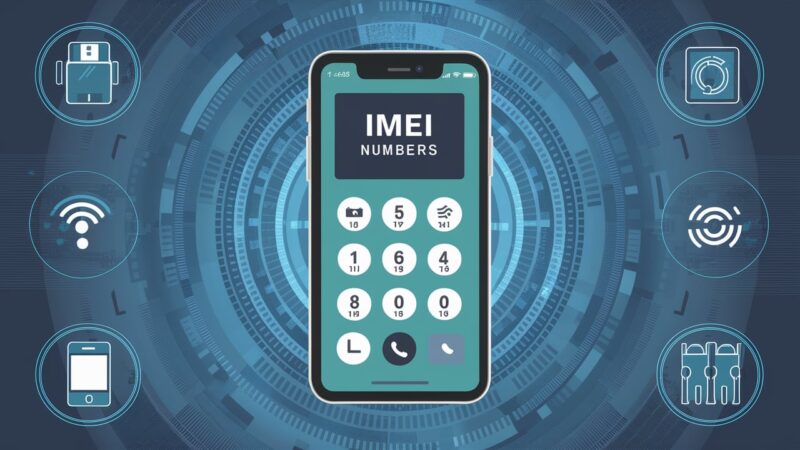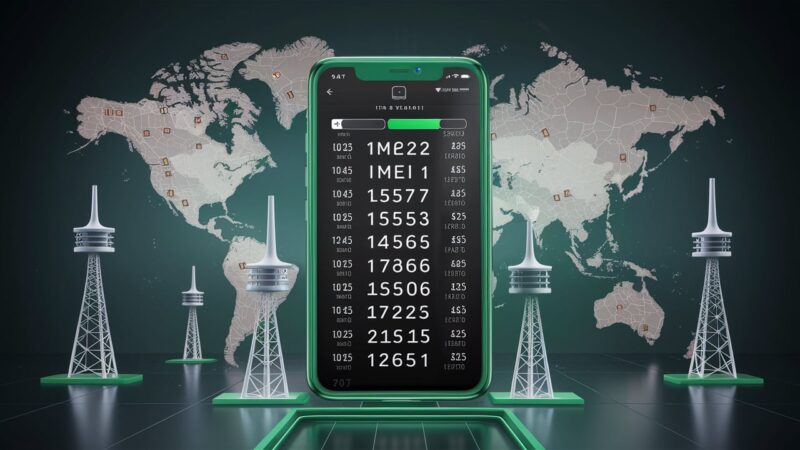IMEI numbers are a crucial aspect of mobile phones that play a significant role in identifying and tracking devices. Understanding the ins and outs of IMEI numbers can help you protect your privacy and security in the digital age.
From the basics of what an IMEI number is to how it can be used for tracking purposes, this article will delve into three key aspects that every mobile phone user should know. Stay informed and empowered with the knowledge of IMEI numbers and phone tracking to ensure you are in control of your personal data and device security.
How IMEI Numbers Can Help Locate Lost or Stolen Phones

IMEI numbers play a crucial role in tracking down lost or stolen phones. Each device is assigned a unique IMEI number, which can be used to locate and identify the device in case it goes missing.
By contacting the phones service provider or using specialized tracking software, authorities can pinpoint the exact location of the device based on its IMEI number. This information can be invaluable in recovering a lost or stolen phone and apprehending the culprit responsible for its disappearance.
By understanding the importance of IMEI numbers and how they can assist in phone tracking, users can take proactive steps to protect their devices and ensure their safety in case they are ever lost or stolen.
How to Track Your Phone Using IMEI Number

Tracking your phone using the IMEI number can be a useful tool in the unfortunate event that your device is lost or stolen. The International Mobile Equipment Identity (IMEI) number is a unique code assigned to every mobile device, making it easier to track down its location.
To track your phone using its IMEI number, you can contact your mobile service provider and provide them with the IMEI number. They can then help track the devices location using GPS technology.
Additionally, there are also online services and apps available that allow you to input the IMEI number and track your phones whereabouts. Keeping your IMEI number handy can help you quickly locate your phone in case of an emergency, providing peace of mind and added security.
The Risks and Limitations of Using IMEI Numbers for Phone Tracking

While IMEI numbers can be a valuable tool for tracking lost or stolen phones, there are several risks and limitations associated with relying solely on this method. One major limitation is that IMEI numbers can be easily changed or spoofed, rendering them ineffective for accurate tracking.
Additionally, not all phone models have readily accessible IMEI numbers, making it difficult to track certain devices. Another risk is that relying solely on IMEI numbers for phone tracking can lead to privacy concerns, as it may involve accessing personal information without consent.
Furthermore, the accuracy of tracking using IMEI numbers can be affected by factors such as location services being turned off or the phone being in airplane mode. Overall, while IMEI numbers can be a useful tool, it is important to consider these risks and limitations when using them for phone tracking purposes.
Conclusion
In conclusion, understanding IMEI numbers and phone tracking is essential for protecting your privacy and ensuring the security of your mobile device. By being aware of how IMEI numbers work and the potential risks associated with phone tracking, you can take steps to safeguard your personal information and prevent unauthorized access to your device.
Regularly IMEI check your IMEI number and staying informed about the latest security measures can help you stay one step ahead of potential threats and maintain control over your digital identity.


